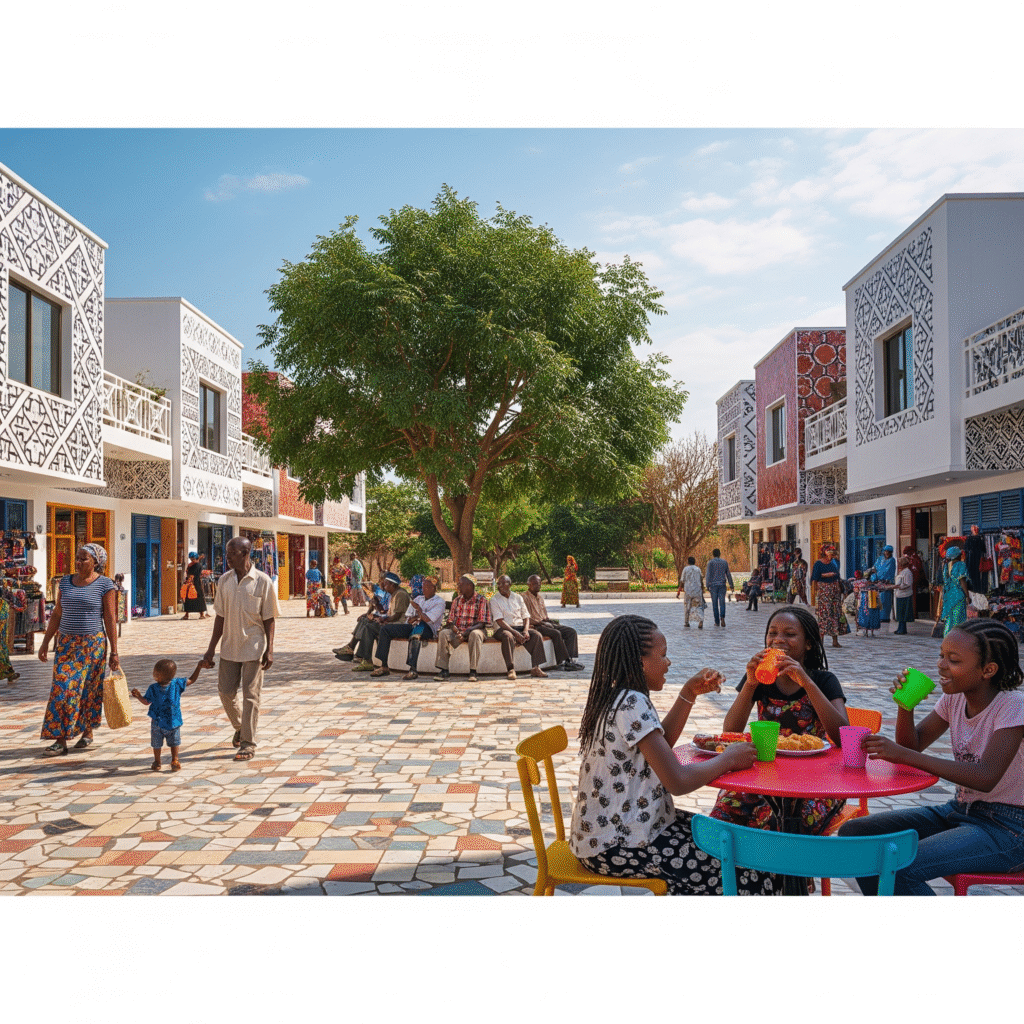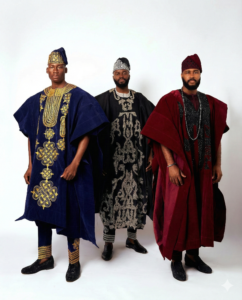The Village Square

In countless African communities, “The Village Square” is far more than just an open space; it is the beating heart, the essential meeting place, and the primary nexus of community life.
Historically and contemporaneously, the village square serves as the primary public space in many African settlements. It’s often strategically located, easily accessible to all residents, and designed to accommodate a variety of activities throughout the day and night. While it’s physical appearance may vary – from a dusty clearing under a large tree to a paved plaza in a bustling town – its function as a central hub remains constant.
Hub for Governance and Justice
Community Assemblies: The village square is the traditional site for communal meetings, where elders, chiefs, and community members gather to discuss local affairs, make collective decisions, and address issues facing the community. This is where local democracy is practiced.
Dispute Resolution: Many traditional justice systems operate within the village square, with community leaders mediating disputes, hearing cases, and facilitating reconciliation processes that prioritize communal harmony.
Center for Celebration and Ritual
Festivals: Major cultural and religious festivals often culminate or are entirely hosted in the village square. It becomes a vibrant stage for traditional dances, musical performances, masquerades, and elaborate ceremonies that reinforce cultural identity and unity.
Rites of Passage: Important rites of passage, like naming ceremonies, coming-of-age celebrations, and marriage festivities, often involve communal gatherings in the square, allowing the entire community to participate and affirm these life transitions.
Everyday Social Interaction
Marketplace: In many villages, the square doubles as a daily or weekly market, where vendors sell produce, crafts, and essential goods. This transforms it into a lively economic and social hub.
Informal Gatherings: Throughout the day, the square is a place for spontaneous social interaction. Children play, women gather to process food or chat, and men sit under trees to discuss local news or play traditional games.
Storytelling and Education: Evenings often see elders gathering to tell stories, impart wisdom, and teach younger generations about history and culture.
Symbolic Significance: The village square often holds deep symbolic meaning as the collective space of the community. It embodies the unity, continuity, and shared identity of the people. Its presence reminds individuals of their connection to the larger whole.
In contemporary Africa, even as urbanization changes living patterns, the essence of the “village square” often finds new forms in urban communities – perhaps a specific market area, a community hall, or a park that becomes a central gathering point. The multifaceted roles of the village square (or its urban equivalent) is a venue for governance, celebration, social interaction, and the everyday rhythm that defines collective existence.
In Nigeria, for instance, local markets and open community grounds continue to serve these vital functions. “The Village Square” is a timeless concept, a testament to the enduring human need for collective spaces that foster community, culture, and connection.










